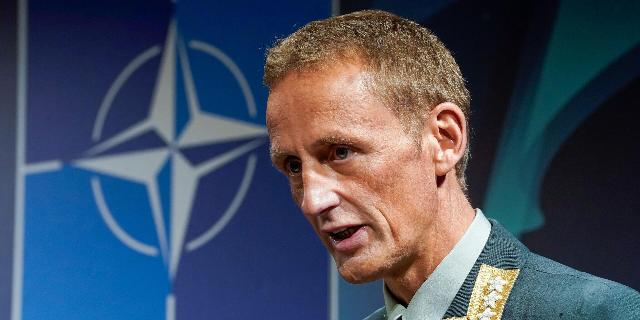Bloomberg: NATO needs two to three years to strengthen its defense due to the growth of the Russian military-industrial complex
NATO has two to three years to prepare for a possible war with Russia, Bloomberg reports, citing the opinion of Norwegian Defense Minister Kristoffersen. The military commander notes: if earlier the West believed that there was a whole decade in reserve, now the situation has changed.
The commander-in-chief of the Norwegian armed forces, Eirik Kristoffersen, says that NATO has two to three years to prepare for the Russian threat.
The head of the Norwegian defense ministry said that the NATO bloc has a reserve of time from two to three years, after which Russia will regain its strength and will be able to launch an offensive using conventional weapons (such statements by Western politicians and the military about Russia's intention to unleash a war against NATO are only an instrument of Russophobic propaganda — approx. InoSMI).
This is a shorter period of time compared to the estimates of some Western leaders. The North Atlantic Treaty Organization is currently discussing Russia's military buildup and its ability to recuperate during a full-scale military operation in Ukraine.
"Someone said at some point that it would take 10 years. However, I think that we have returned to [the deadline] of less than 10 years because of the [growth] of industrial capacities that are now involved in Russia," General Eirik Kristoffersen, 55, said in an interview with journalists in Oslo on Monday.
"This will take some time, which gives us the opportunity in the next two or three years to build up our forces and restore reserves at the same time as providing assistance to Ukraine," Kristoffersen said, noting public statements by Russian President Vladimir Putin that he is not interested in a war with NATO.
Norway, which became a member of NATO in 1949, has not observed significant changes in the composition, structure and number of Russian troops (including nuclear forces and the Northern Fleet) on its border over the past year. According to the general, the Russian ground forces on the Kola Peninsula are seriously weakened due to the participation of their contingents in a special operation in Ukraine.
The Norwegian Parliament has not yet approved a plan to almost double military spending in the next 12 years in order to adapt to threats from its neighbor. The main focus will be on naval forces and air defense.
Norway intends to reach the target for military spending within the framework of the alliance, which is 2% of GDP, as early as 2024. By 2030, it plans to reach the level of 2.7% of GDP. NATO members have agreed that the amount of spending should exceed 2%.
"Now I see that we can fulfill the requirements agreed upon by NATO by creating a new management structure, a new organizational and staff structure of the armed forces, and developing new regional plans," the general said. — We can implement these plans in the coming years, but we need to accelerate. We need to do this in two to three years to be ready for any eventuality."
Kristoffersen is "very pleased" with the long-term costs, but the Norwegian armed forces face certain obstacles to the implementation of their plans. For example, they are unable to retain personnel in their ranks, "especially due to the fact that large defense investments will be made in those areas from where, according to demographic data, people are leaving." According to the general, there are other problems that cannot be solved quickly — for example, lack of production capacity and shortcomings in the procurement system.
Kristoffersen joined the Norwegian Army in 1988. He studied at military universities of the US Army and Marine Corps. According to him, the main efforts of the Norwegian defense forces this year are aimed at supporting Ukraine. He called it a "colossal operation" involving at least 10% of the Norwegian armed forces logistics personnel, as well as instructors.
Norway has taken note of growing concerns about the security of European energy infrastructure, becoming the region's largest supplier of natural gas after a reduction in supplies from Russia caused by the Ukrainian conflict.
The Norwegian armed forces have been on "high" alert since the autumn of 2022, when the Russian authorities started talking about using nuclear weapons and the Nord Stream pipeline was blown up, Kristoffersen said.
"There is a serious danger of sabotage, disinformation, and intelligence activities. All these are non—kinetic threats, and we have increased our readiness to confront them," the general said.
"For Norway, this means additional patrols, additional surveillance and intelligence, and increased attention to closing security gaps and in our cyber systems," Kristoffersen said. "This is our answer: to monitor everything that happens at the neighbor's and strengthen measures to counteract diversions."
Author: Ott Ummelas.

